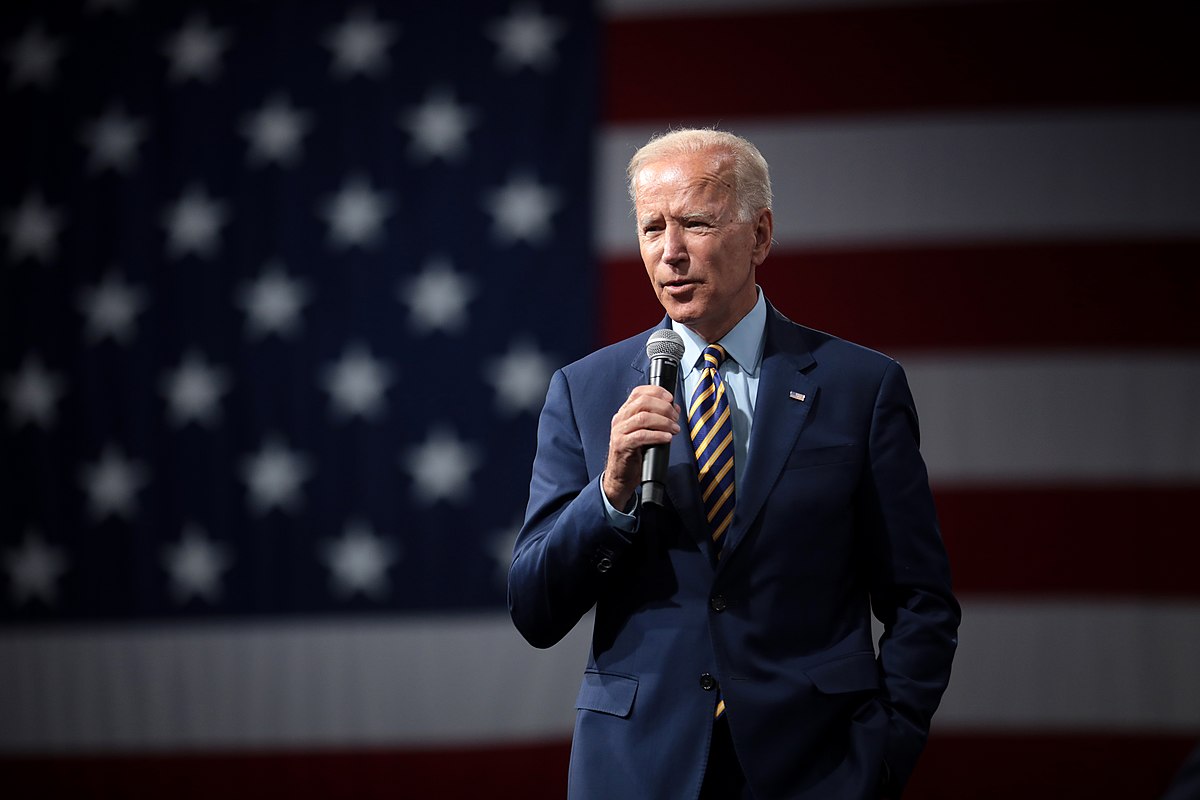This week, Prime Minister Boris Johnson finally learned that his new US counterpart would no longer be President Trump. Instead, he will have to work with President Obama’s former Vice-President Joe Biden. Despite offering his congratulations to President-elect Biden, Johnson may face a far less accommodating United States under new leadership.
After President Trump’s election in late 2016, the political landscape within the US shifted substancially – moving away from Obama’s outward-looking policy style to a far more nationalist style of politics. Only a few months before had the Brexit referendum occurred in the UK, an event which determined the country’s path in world politics. It was to divorce from the European Union.
It was only in April 2016 that then-President Barack Obama had warned of the consequences of voting for Brexit. At a press conference held in the Foreign Office with Prime Minister David Cameron, Obama stated that the UK-US trade agreement (something touted by Brexiteers as the key to post-EU prosperity) might happen “maybe somewhere down the line.” However, he also added that: “But it’s not going to happen anytime soon because our focus is negotiating with a big bloc, the European Union.
“The UK is going to be back of the queue.”
This crushing development from the US President had little impact on the outcome of the referendum however – much to the disappointment of David Cameron. With Cameron forced to resign after the devastating defeat of the remain campaign, in the eyes of the Brexiteers, only President Obama and the Democratic Party stood between the UK and a lucrative transatlantic trade deal. By November, this problem had seemingly resolved itself – Obama was gone, Democratic presidential candidate Hillary Clinton was defeated and Republican outsider Donald Trump was elected the 45th President of the United States.
“Trump was the key. Without his continued promises of a post-Brexit trade deal, the ‘no-deal’ threat would become unrealistic.”
Even before the referendum result Trump had already stated that “I would say that [the UK] are better off without [the EU].” His election gave gravitas to Brexiteers’ claims of economic prosperity outside of Europe – bolstered by Trump’s comments declaring Brexit a “great victory” for Britain.
Throughout his tumultuous presidency, Donald Trump remained Britain’s strongest ally on Brexit. He became the ‘trump card’ for Theresa May’s negotiating tactic of “no-deal is better than a bad deal” with the EU. A strategy that gained admiration from her backbench critics in the European Research Group (ERG) and caused concern amongst her more recognisable allies in the party. Trump was the key. Without his continued promises of a post-Brexit trade deal, the ‘no-deal’ threat would become unrealistic.
It would not be long until Trump’s unwavering support for May’s Brexit plans would begin to falter. In November 2018, just over 18 months after the President and the Prime Minister were seen holding hands in the West Wing, Trump spoke out against May’s proposed Brexit deal – claiming that it “sounds like a great deal for the EU.” He also added: “Right now if you look at the deal, [the UK] may not be able to trade with us.”
“The power of the President over Brexit Britain’s politics suddenly became evident.”
Although it was merely an off-the-cuff swipe at the PM, whom he had a strained relationship with, it became the final nail in the coffin for Theresa May’s strategy. Only two months later, the PM’s Brexit deal was voted down in the commons in what was the largest government defeat ever – with a majority of 230 votes against. By July that year, Theresa May had been forced out of office by impatient backbenchers and replaced by the Brexit poster boy Boris Johnson. The power of the President over Brexit Britain’s politics suddenly became evident.
But what does this all mean? What can looking at pre-pandemic transatlantic politics teach the current cohort of politicians in the Commons today? One factor that cannot be ignored by any means is the current pandemic – it would be foolish to disregard its impact on the political landscape of both the UK and the US. It has revealed societal disparities in health, education and the economy. It has shone a light on the true impact of poverty in Britain and the US. The pandemic has also revealed the weaknesses and imperfections of each government – amplifying their mistakes to a now more watchful public and media. Political actions can no longer be taken without extreme scrutiny.
This new fact of political life may be beneficial for the political literacy of the UK but, when so many key decisions have already been reversed after backlash, it has only been detrimental to the strength of Boris Johnson government. Now that the UK has entered another four-week lockdown, it is highly likely that the economy will take another damaging hit – something which may further impact the poorest in society.
“Without Trump flying the flag for a prosperous UK-US relationship, the task of convincing his party that no-deal is still better than a bad deal will be an unenviable one for Boris Johnson.”
The medias memory of political promises may be short but the public’s is far longer. The British people will still remember the promises made to them in 2016 – most notably the promise of a UK-US trade agreement which would guarantee the UK’s economic security outside of the EU. For this to still happen the UK will either have to leave the EU with a deal that does not restrict international trade for the UK or via a no-deal. At present, Prime Minister Johnson has stated that “significant differences remain” between the EU and the UK but that there is “still a deal to be done.”
This sort political impasse has not uncommon during these long and tiring negotiations. However, one factor is notably different – Trump is no longer the US President. Without Trump flying the flag for a prosperous UK-US relationship, the task of convincing his party that no-deal is still better than a bad deal will be an unenviable one for Boris Johnson.
Not only will Johnson be working to ensure that a possible no-deal has only limited negative effects on an already bruised UK economy, he will now have to negotiate a potential US-UK deal with Barack Obama’s Vice-President Joe Biden who convincingly won the US election this week. Unlike Theresa May and Donald Trump, Biden and Johnson are no strangers to one-another. The pandemic has made an in-person attempt to woo President-elect Biden impossible – something that is unlikely to have occurred under normal circumstances anyhow.

President-elect Biden, who stood with Obama against the notion of the UK leaving the EU, has previously commented on Boris Johnson’s leadership, stating that the PM is a “physcial and emotional clone” of Donald Trump – something recognised by Trump himself when he commented that “[the public] call him the Britain Trump. That’s a good thing.” In addition to personally criticising Johnson, Joe Biden has also outlined the conditions for any future trade deal, declaring that “any trade deal between the US and UK must be contingent upon respect for the [Good Friday Agreement] and preventing the return of a hard border. Period.”
This leaves Boris Johnson in a very difficult situation. As he will be aware, should the UK leave the EU without a deal on 31st December, a no-deal scenario would dictate that a hard border be set up Northern Ireland and the Republic of Ireland – something that would be detrimental to any future trade opportunities with the US. Should a deal not be reached with the EU that prevents a hard border and a border in the Irish Sea (a condition that his own unionist party members would be wholly against) then it seems highly plausible that a UK-US trade deal would not occur.
Johnson, like Theresa May before him, is bound by the conditions set upon him by a foreign power. Without the backing of the US President on his Brexit approach, the vision for a prosperous UK without the EU will be almost out of reach for the PM. Not only will his promise to “get Brexit done” to the British public be broken but his identical pledge to party members and MPs will be too. It remains unclear whether their support for the PM would be withdrawn but it would be a realistic possibility – one that could see Johnson ousted as Prime Minister as early as January 2021 should no-deal become the UK’s chosen path for Brexit.
“any trade deal between the US and UK must be contingent upon respect for the [Good Friday Agreement] and preventing the return of a hard border. Period.”
Joe Biden, President-elect of the United States (16/9/20)
We do not yet know what to expect from a Biden administration, a lot as changed since he served under the pro-remain Obama administration in 2016. Biden’s first priority will be, as outlined on his campaign website, to control COVID-19 – an objective that is currently secondary in the US. Until this pandemic has subsided and the US has recovered from their deep economic wounds, Joe Biden’s attention cannot be turned towards any international trade deal. Boris Johnson, on the other hand, is currently juggling his attention between an epidemic, a looming no-deal Brexit, declining polling figures and his waning support of his leadership. A dangerous balancing act that can, and will, only end in disaster for both Johnson and UK should something not change – and fast.
Image: Gage Skidmore

